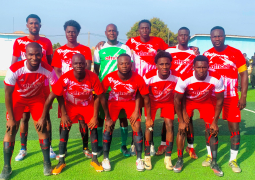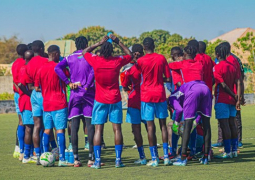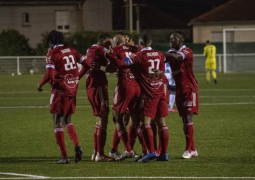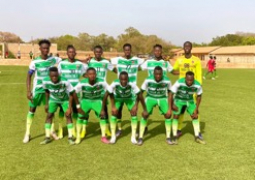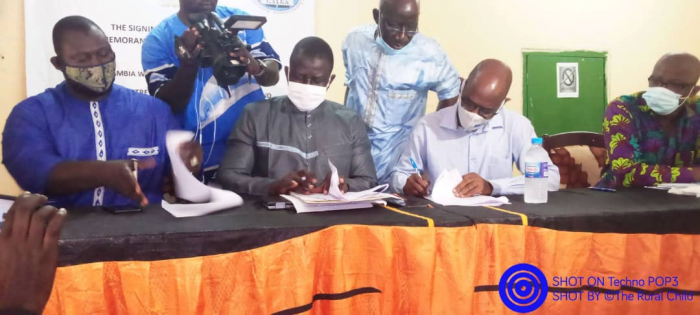
The signing ceremony took place at Mansakonko in Lower River Region.
The ceremony which was graced by wrestling stakeholders and club managers amongst others is aimed at promoting traditional wrestling as cultural heritage with the creation of a network of wrestling training clubs and use wrestling as a tool to create solidarity amongst communities.
It could be recalled that earlier in May; a project was signed between the Gambia Chamber of Commerce and Industry (GCCI) in partnership with the European Union (EU) to promote Investments in Culture, Creative Arts and Sports to enhance resilience against Climate Change in Local Communities.
Speaking at the signing ceremony in LRR, Shering Modou Faye, president Gambia Wrestling Federation, while describing the occasion as a great milestone for the development of wrestling in the country expressed delight with the develpment.
He noted that as executive tasked to develop wrestling in the country, they believe the project would boost their efforts to moving wrestling sports to another level in the country.
“Part of our problems for the development of wrestling in the country is the lack of venues to hold our events as we always find it difficult during the football season as all the venues in the country are mainly for football purposes,” he said.
He went on to thank the European Union and Gambia Chamber of Commerce and Industry (GCCI) for the project, adding that the support will go a long away in the annals of sports development in the country especially in the areas of wrestling.
According to him, wrestling was seen only as a tradition and entertaining before, but noted that now, it is taken as a means of earning for survival just like football and other sports.
“Wrestling is one of the oldest sports and now is seen as a way of receiving big money payment. Aside from football, wrestling is one of the most followed and attractive sports in the country.”
He finally thanked all stakeholders especially the European Union through GCCI for the hard work and efforts rendered towards the development of wrestling in the country.
Hassoum Ceesay, director general of NCAC, said that the project came following a three-year need assessment study on Gambian creating and cultural sector undertaken by the NCAC in partnership with institutions like the Kwame Nkrumah University of Science and Technology and project consultant Chris Addy-Nayo.
According to him, the project seeks to strengthen the capacity and legal framework of the artistic associations in the country, adding that Gambian laws have recognized seven artistic associations, including the Writers Association of The Gambia, Music Union amongst others.
He said NCAC shall provide technical support in the development of cultural and traditional wrestling training materials for annual two-day training and trainers’ course and events management for the coordinators of the eight new venues that will be built.
Landing B. Sanneh, chairman of Mansakonko Area Council who doubles as President of GALGA, said local government authorities of the country realized that there cannot be any meaningful sustainable development without the active involvement and participation of local government authorities.
“I believe that this is the beginning of a new era in local government administration in the country. We are prepared to position the local government authorities in the center of development of the country.
He went on to call on all meaningful stakeholders to emulate the European Union in recognizing the role of local government authorities in promoting local sports like wrestling and also inject magnificent investment for the development of Gambian sports.
Chris Addy-Nayo, trade policy consultant, said the project seeks to empower young people and also provide lessons to other countries to learn from.
“This project intends to support young people to engage them and also make sure they will not undertake illegal migration. Within our own environment we have asset and culture and if we are able to harness it by traditional lane, it will help young people to achieve their aspiration within their community,” he said.
Other speakers included Sarata Conateh, GCCI director of Business Development and Marcel Mendy, executive director, National Sports Council.


